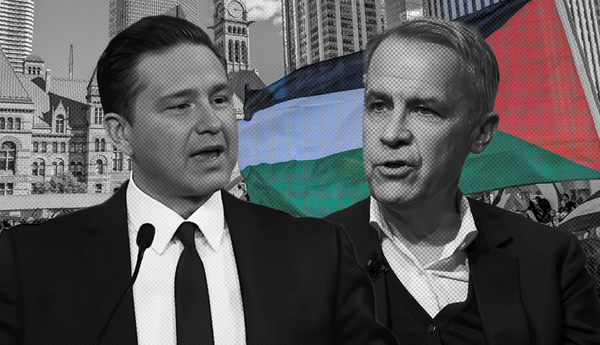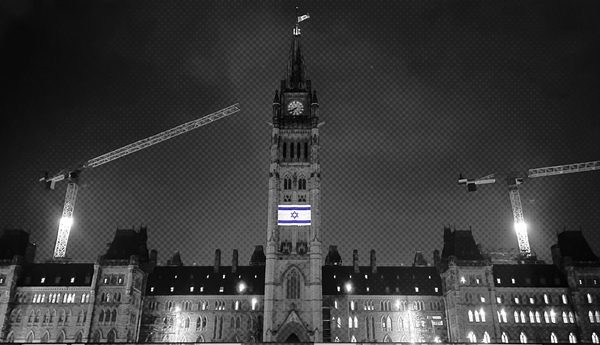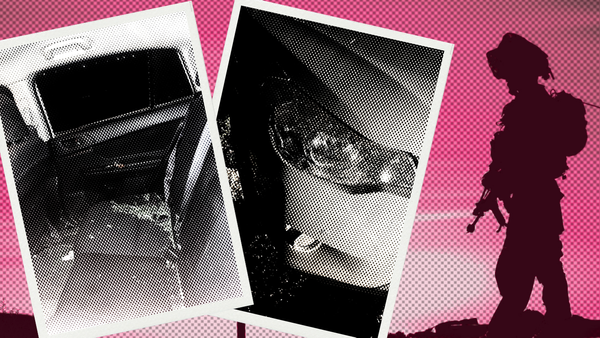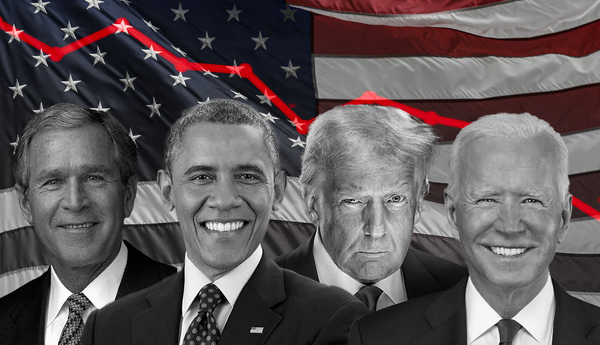In January, the federal NDP released a statement on Ukraine affirming that it “has always believed peace is achievable through diplomacy,” and advocating for a negotiated solution, rather than military escalation, to the crisis in Eastern Europe. This was consistent with its 2021 election platform, where it pledged to “make sure that Canadian-made weapons are not fuelling conflict.”
Nine months later, in the midst of Russia’s invasion of Ukraine and on the 60th anniversary of the Cuban Missile Crisis, such restraint is needed more than ever. The war has reached dangerous new heights, with United States President Joe Biden recently warning of the “prospect of Armageddon.” U.S. officials have privately said the conflict will not result in either side achieving total victory. Moreover, recent Ukrainian gains on the battlefield even present an opportune time for negotiations with Russia.
Instead of seeking peace and restraint, however, NATO is committed to an aggressive, ‘whatever it takes’ strategy that fuels the war further by shipping over more weapons. Canada alone has spent more than $600 million on military aid for Ukraine thus far. This absolute dedication to deepening the conflict underlines the real goal of the U.S.-led NATO alliance: use Ukraine as a proxy to see Russia “weakened” and secure hegemony in Europe, all the while benefiting the military-industrial complex. Such hawkishness doesn’t help Ukrainians, but rather has accelerated death and destruction in the country. It has also put humanity on the path to nuclear annihilation, cornering Russia in a conflict it considers an existential security threat.
Yet, in the midst of all of this, the NDP abandoned its pro-peace position. Having made a confidence-and-supply agreement with the Liberals in March, which will see defence spending increase by billions, the supposedly progressive social democratic party is now an active participant in a tri-partisan warmongering agenda.
This deal has blurred the line between the Liberals and NDP, accelerating the decline of the latter’s relevance. More concerningly, it has helped stigmatize anti-war politics and expel them from mainstream debate. Those who dare to advocate for de-escalation and diplomacy are even smeared as appeasers, apologists for Russian President Vladimir Putin and propagators of Russian “disinformation.” Borrowing from the Cold War and War on Terror playbooks, these tactics have stifled nuanced dissent in favour of bellicose binaries, and NDP members of parliament have even joined in, with Charlie Angus recently tweeting, “I have a deep respect for pacifists. Those promoting the so-called ‘peace’ option in the Ukraine war however, however, give off the odious whiff of being complicit in spreading the Putin or the Chinese state agenda.”
This has also resulted in peace advocacy among political parties being left to Canada’s far-right figures.
Consider the outrage surrounding Alberta’s new premier, Danielle Smith, for example. Earlier this year during a livestream, she claimed that “the only answer for Ukraine is neutrality,” implying that the country should refrain from joining NATO, a move that Russia has long said is a red line. Smith’s position isn’t controversial in the slightest to many Western international-relations scholars. In the early months of the war, Ukrainian President Volodymyr Zelensky himself acknowledged neutrality, alongside security guarantees, as a basis for peace talks.
Regardless, the Alberta NDP didn’t hesitate to attack Smith’s pragmatic comment. Opposition critic Sarah Hoffman called it “cruel” and accused Smith of “choosing to side” with Putin. The federal NDP’s foreign affairs critic, Heather McPherson, said that Smith and Conservative Party Leader Pierre Poilievre don’t “stand with Ukraine.” NDP Leader Jagmeet Singh piled on, calling Smith’s words “dangerous.”
Smith initially defended her comment, calling for “measured diplomacy,” before apologizing. Maxime Bernier, the leader of the far-right federal People’s Party of Canada, responded to Smith’s reversal by refusing to apologize for similar comments he previously made, reiterating the point that “we should support a peaceful solution instead of a dangerous escalation.”
Earlier this month, in response to a series of Russian missile strikes, Bernier also expressed opposition to further Canadian military aid to Ukraine, while Singh instead advocated for more “support” to the country.
Similarly, in the U.S., Donald Trump has led the charge in calls for immediate negotiations with Russia to avoid “World War III.” Meanwhile, “Squad” members, ostensibly the left-wing of the Democratic Party, have been confronted by protesters for voting to fund the war. And this week, after finally calling on Biden in a letter to pair material support for Ukraine “with a proactive diplomatic push […] to seek a realistic framework for a ceasefire,” a group including this faction buckled under pressure and withdrew even that mild request.
Smith, Trump and Bernier are all dangerous far-right figures. Yet if social democrats abandon anti-war politics, and help marginalize and vilify reasonable calls for de-escalation and diplomacy, they will be some of the only mainstream politicians representing — whether genuinely or otherwise — concerns of dangerous military escalation and nuclear war. This would be a tragedy.
It also brings the NDP’s purpose in parliament into question. Ideally, the party should present an alternative, progressive vision to the Liberal-Conservative establishment, and enrich the scope of public debate on any given issue. Instead, Liberal hawkishness has been given a green light. Diplomats are seemingly encouraged to be recklessly undiplomatic, whether it’s Foreign Minister Mélanie Joly reinforcing Ottawa’s support for Ukraine’s bid to join NATO or Canadian ambassador to the United Nations, Bob Rae, saying the country should send every weapon that Ukraine requests. It also allowed Defence Minister Anita Anand, when directly asked about nuclear war in a CBC interview, to stick to talking points about escalating the military strategy and say that it’s up to Putin to end the conflict.
Russia’s war is illegal and immoral, and Putin should withdraw from Ukraine. But that’s a fight for Russians to wage inside their country — people in Canada can only hold our government accountable. For this reason, and many others, the NDP should be at the forefront of efforts to question the Liberal’s pro-war strategy and highlight NATO’s own complicity in precipitating and fuelling the war.
A progressive answer to any problem requires an examination of root causes and historical context. Ideally, the NDP would take the relevant factors here into account, and pressure Ottawa to facilitate a negotiated settlement with all parties. Instead, the NDP serves as a useful attack dog for the Liberals. The party marks the leftmost edge of the Overton window in Canada at the moment, and with that legitimacy, weaponizes Ukrainian suffering and polices perspectives that don’t push for more war.
The NDP has faced questions about its identity this year, particularly after its deal with the Liberals, which was widely criticized. Now, if both parties are pro-war during the most consequential crisis in decades, does the NDP have any remaining reason for existence?
Unfortunately, the capitulation of Singh’s party to the hawkish establishment is part of a broader historical trend, whereby Western social-democratic parties, in exchange for some concessions to the working class, have supported imperial and hegemonic projects abroad. The NDP has inherited this legacy, and often actively reinforces it when tested by war and regime change efforts. But this time, global annihilation is on the table.
Saving the lives of Ukrainians, and the rest of humanity, requires an immediate push for de-escalation and diplomacy, not militarization and warmongering. Lest the far-right steals their purported anti-war identity, progressives need to have the courage to unreservedly stand for peace.






